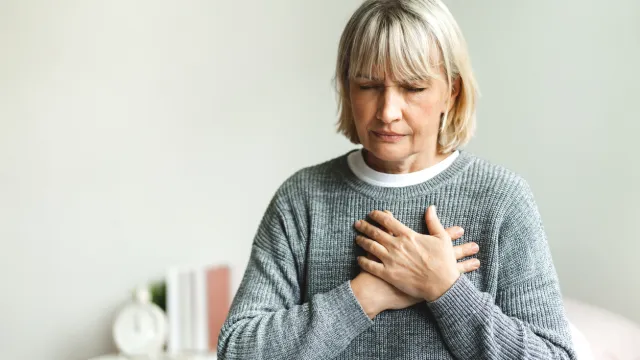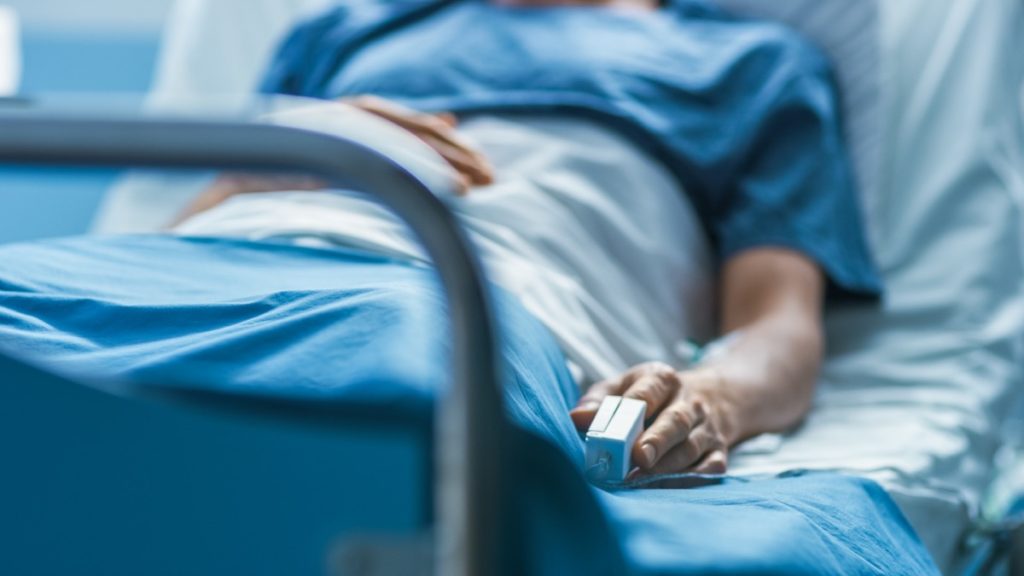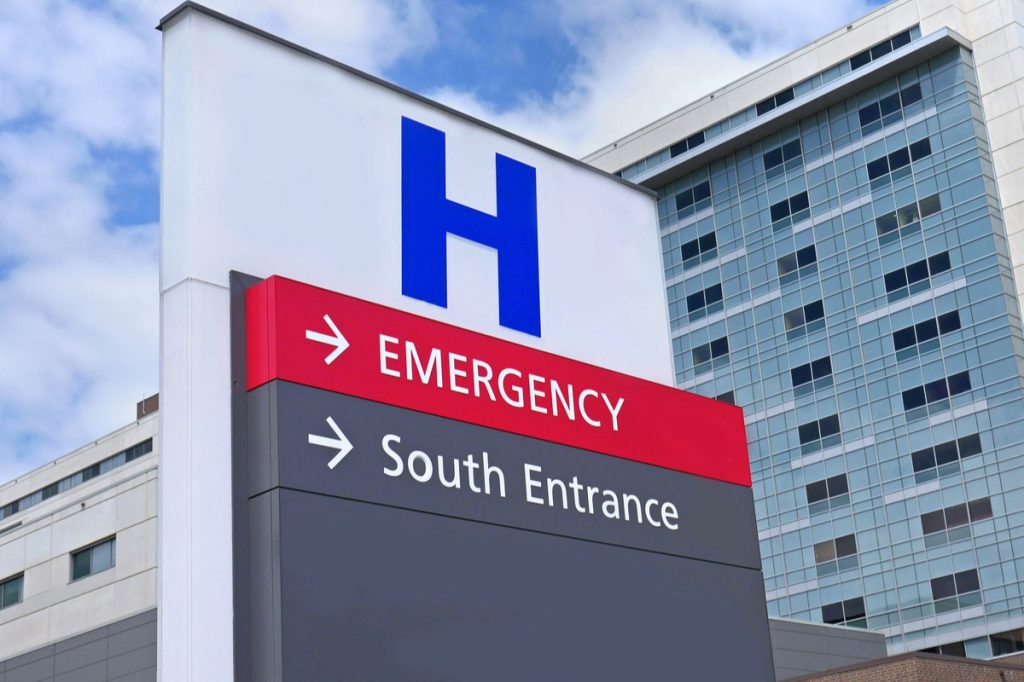40-Year-Old Mom Shares Surprising Symptoms of Her “Widowmaker” Heart Attack

Paying attention to heart health is something we tend to prioritize more as we get older. But in middle age, the thought of having a serious cardiac medical emergency probably isn’t at the top of our minds—especially for women. That’s why it’s essential to know the signs of any potentially serious problems before issues arise. To that end, a 40-year-old mom who suffered a “widowmaker” heart attack is now spreading awareness about the surprising symptoms she experienced beforehand. Read on to see which warning signs you need to know to stay safe.
RELATED: Drugs Like Tylenol May Alter Heart Function, Study Says—How Much Is Safe.
A “widowmaker” is a particularly lethal form of heart attack.

As its name suggests, “widowmaker” heart attacks are gravely serious medical emergencies. They occur when the left anterior descending (LAD) artery—the heart’s biggest artery that supplies it with half of its blood supply—suffers a total blockage due to cholesterol buildup, according to Cleveland Clinic. Once deprived of blood flow, the muscles of the heart can begin to die.
But while the nickname may be accurate when it comes to severity, a “widowmaker” isn’t just limited to men and people who are assigned male at birth (AMAB): Women can also experience them.
“The ‘widowmaker’ is a lay term for a particular type of heart attack,” Gary Niess, MD, an interventional cardiologist with Novant Health Heart & Vascular Institute, said in an interview. “Any artery closure can cause a heart attack where the heart muscle dies, but the widowmaker has a higher rate of mortality.”
Unfortunately, heart attacks are also alarmingly common. More than 800,000 people in the U.S. suffer them annually, which adds up to about one every 40 seconds, per Novant Health. It also remains the top cause of death for both men and women nationally.
RELATED: Diet Soda Fans, Take Caution: New Study Finds Serious Heart Condition Risk.
One younger woman felt “something was wrong” before sending herself to the emergency room.

According to Cleveland Clinic, the risk of heart attack increases for men and people AMAB beginning at age 45 and for women and people assigned female at birth (AFAB) at 50. However, people of any age group can still be affected—including one middle-aged woman who is now trying to raise awareness.
In 2022, then-40-year-old Jessica Charron began feeling something was amiss when she noticed a tingling down her neck that reached her back and arms and the feeling of chills. Despite first assuming the feeling was from having spent too much time outdoors on a hot summer day, she soon realized it could be from something more serious when it came in waves and felt stronger each time.
“I just knew something was wrong,” she told Today. “I felt like this is just not a normal chill—not even a flu-like chill. It was different. It was more intense.”
RELATED: 8 Daily Habits That Keep Your Heart Young.
Doctors could not pinpoint what was wrong during their first round of testing.

Charron soon decided to take herself to the emergency room at a nearby hospital. And even after initial testing was unable to pinpoint any problems, she didn’t brush off the worsening symptoms she was experiencing.
“I looked at the ER doctor and teared up,” she told Today. “I was adamant that [something was] wrong, and I was so scared they were going to send me home.”
By then, pressure in her head had begun to intensify and she began getting physically ill. After running another test, doctors then realized Charron was having a “widowmaker” heart attack with an 85 percent blockage in her LAD.
“I was absolutely shocked,” Charron told Today. “There was nothing leading up to that which would have indicated that I would be a candidate for a heart attack.”
Heart attacks can still appear differently for some people. Here are some of the symptoms.

Charron underwent surgery to have a stent placed in her artery, knowing she would likely need surgery later to deal with two other blockages doctors discovered. But months later, she was back in the hospital with similar symptoms and underwent a triple bypass to address the issue. Now, after what she called a “difficult” recovery, she says her story is a reminder that people—especially women and AFAB—should be aware of the risks to keep themselves safe.
“I was young. I was healthy,” she told Today. “The biggest lesson learned for me is that heart disease doesn’t really discriminate.”
According to Laura Mauri, MD, chief scientific, medical, and regulatory officer at Medtronic, a healthcare technology and medical device company, some of the most common warning signs of a heart attack include chest pain or pressure, shortness of breath, excessive sweating, and pain in the neck, arm, or back.
But while these symptoms can be different for men or women and from person to person, acting fast can be the biggest determining factor in surviving a heart attack.
“When you’re in an ambulance, getting early treatment actually saves lives,” Mauri told Today. “The good news is that in many cases, if a heart attack is detected early, the treatment can be pretty quick and not lead to a long hospitalization and lead to a full recovery. It’s not uncommon that people recovering from a heart attack go back to living even healthier lifestyles than they did before the heart attack.”